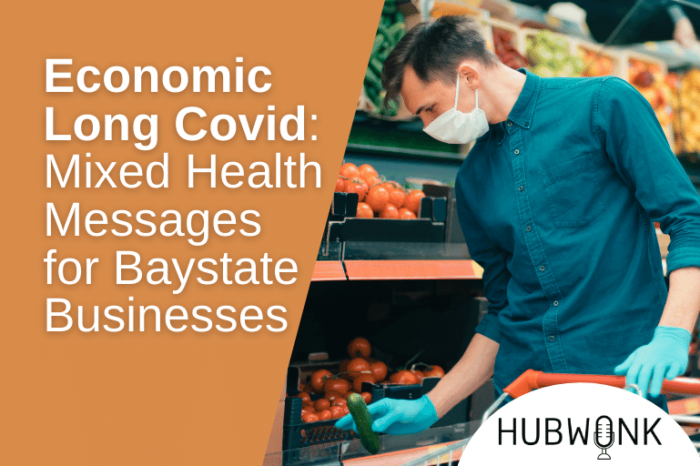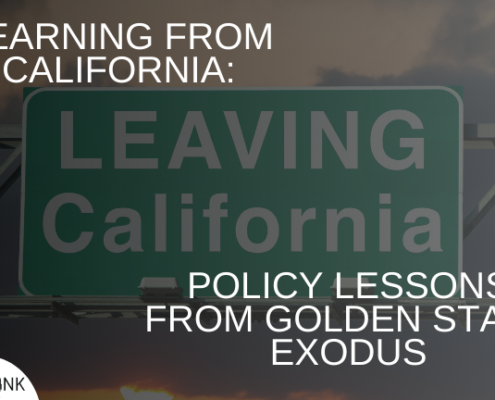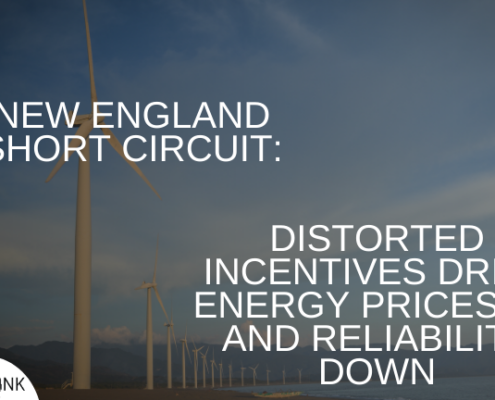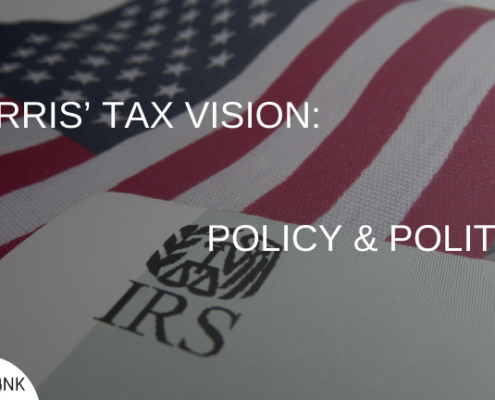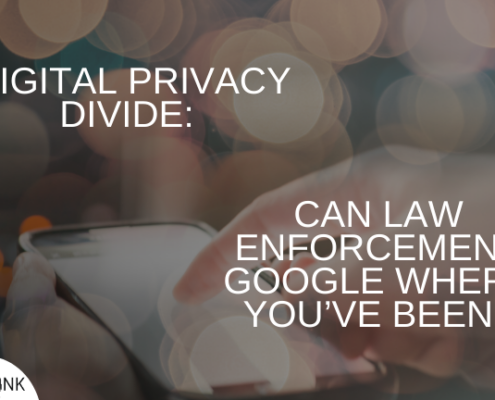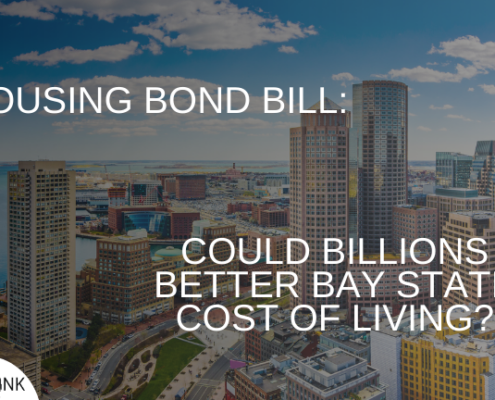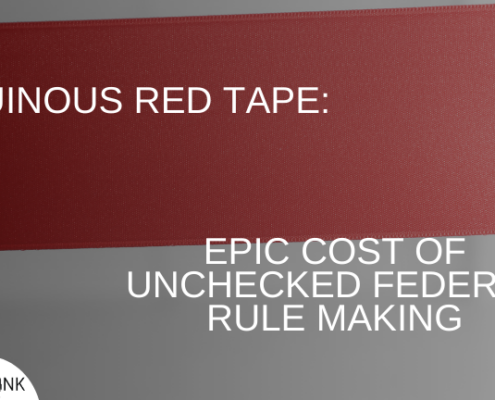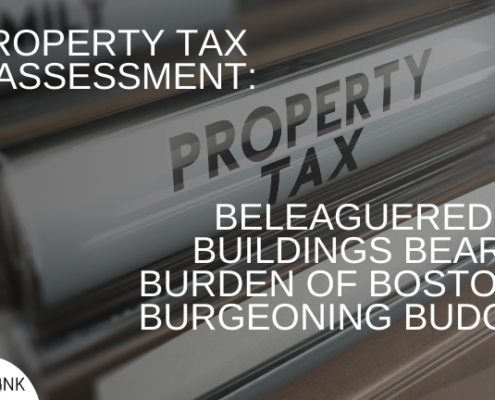Economic Long Covid: Mixed Health Messages for Baystate Businesses
Hubwonk host Joe Selvaggi talks with NFIB’s Chris Carlozzi and Retailers Association of Massachusetts’ Jon Hurst about the challenges and future prospects for businesses as they adapt to widespread consumer confusion caused by vague and often conflicting public health messaging from our political leadership.
Guests:
Christopher Carlozzi is Massachusetts State Director of NFIB. Aside from working directly with NFIB members across New England, he worked to enact legislation that would help small businesses in both the Massachusetts and Rhode Island Legislatures. Carlozzi spent 3 years working in the Massachusetts General Court for Assistant Minority Whip, State Representative John Lepper and has managed two United States Congressional campaigns in Pennsylvania and New Jersey. Carlozzi received his bachelor’s degree from the University of Massachusetts Amherst.
Jon Hurst has served as President of the Retailers Association of Massachusetts (RAM) since 1990. As CEO of the 4,000-member statewide trade association, Hurst manages the member services, education and public affairs of the organization. Hurst also serves as Chairman of the Board of the MA Retail Merchants Workers Compensation Group, Inc., a non-profit group organized by RAM in 1991. He also heads the Retailers Association of Massachusetts Health Insurance Cooperative, the first non-profit small business health insurance cooperative authorized in 2012 by the state. Hurst has served on various state advisory boards, including current roles with the Economic Development Planning Council, the Statewide Healthcare Quality Advisory Committee, the Health Policy Commission Advisory Council, and the Workforce Competitive Trust Fund Advisory Committee. Hurst has served on numerous non-profit boards, including the Beverly YMCA, Beverly Main Streets, the National Retail Federation, and also served as Chairman of the National Association of State Retail Association Executives.
Read a Transcript of This Episode:
[Please excuse typos]
Joe Selvaggi:
This is Hubwonk. I’m your host, Joe Selvaggi.
Joe Selvaggi:
Welcome to Hubwonk, a podcast of pioneer Institute, a think tank in Boston, Commonwealth businesses were hit hard by the COVID-19 lockdowns. While many firms were forced to close for good, some survived with the help of aid programs and the ingenuity of the entrepreneurs who adapted as the challenges unfolded relief from this ordeal has come in the form of safe and reliable vaccines, broadly embraced by Commonwealth eager to find a path back to normal. But despite the efficacy and broad uptakes of vaccines, many political and business leaders have been reluctant to encourage a return to life as normal shuttered offices and mask mandates have left consumers and small businesses with confusion and anxiety, most wondering what it will take for leadership at all levels to finally encourage a return to normal. My guests today are Jon Hurst, president of the Retailers Association of Massachusetts and Chris Carlozzi, state director for the National Federation of Independent Businesses.
Joe Selvaggi:
Jon and Chris represent hundreds of small businesses across the Commonwealth that employed thousands of Massachusetts residents. They are here to share how their firms are faring, what obstacles and challenges remain before those firms can return to business as usual. And what policy, prescriptions, and signals from political leadership are needed to stave off unnecessary future damage to our workforce, our businesses and our regional economy. When I return, I’ll be joined by Jon Hurst and Chris Carlozzi. Hubwonk is a production of Pioneer Institute, a Boston-based think tank that seeks to improve the quality of life in Massachusetts and beyond. Pioneer is a 501c3 organization that relies on your support. Please visit pioneerinstitute.org to make a tax deductible donation today.
Joe Selvaggi:
Okay, we’re back. I’m now joined by Jon Hurst of the Retailers Association of Massachusetts and Chris Carlozzi, of the National Federation of Independent Businesses. Welcome back to Hubwonk, gentlemen.
Jon Hurst:
Thanks for the invitation, Joe. I appreciate it.
Joe Selvaggi:
Thank you very much. Okay. Let’s set a level set since we last spoke and actually seems like quite a while since we did speak last, we’re now living in a world. We still have COVID and the, and the Delta variant but we also have vaccines that are abundant free and nearly perfect and their ability to prevent hospitalizations and deaths. How have these recent developments changed the fortunes of your members, John, last time you were on a, you did a nice job breaking down who is fairing well through the pandemic, not so well. And who’s doing particularly poorly break down for our listeners, what you have seen as far as who’s, who’s doing better now. And who’s still in pain.
Jon Hurst:
Well, I think those that have redefined themselves reinvented themselves, Joe, and have met the consumer where they want to be met, you know, stores, the mom and pop stores that have also gone online because let’s face it. The early winners were the pure play online sellers. Those stores that have adopted that brought that into part of their consumer service you know, they’re, they’re hanging in there because internet sales have really doubled frankly, doubled through the pandemic. That doesn’t mean that everybody’s doing well. I mean, consumers have come back, you see more traffic in stores and restaurants and venues and so forth. There still is a real profitability issue because as consumer sales have gone up costs have gone up as well, particularly in labor and, and supply chain issues.
Joe Selvaggi:
I see. So those stores who have been able to leverage the impersonal connection selling via the internet, those have been doing well there’s some attending costs to that. Those who naturally require in-person sales, they still continue to suffer
Jon Hurst:
Well, you know, part of the problem, and I’m sure we’ll get the end of this is, is you know, kind of a moving of the goalpost, so to speak and a lot of questions of, you know, the safety and what peop consumers can do. And, and I, I, I fault some politics at all levels of government here for perhaps confusing the consumers about what is safe and what isn’t safe at this juncture.
Joe Selvaggi:
I see. And Chris, what are your members telling you about what they’re seeing about business either returning to normal or still, still struggling in this sort of new post COVID vaccinated climate?
Chris Carlozzi:
Well, you did start to see a level of confidence at the beginning when you didn’t see the vaccination rates start to go up and more people were being vaccinated. And I think you did see that initial, you know, group of people going out, shopping dining, and then it kind of changed. But I also think I then add to what John said that there’s a regional approach here too. I mean, you’re seeing some parts of the state doing better than others. But cities like Boston, where you’re not getting the same foot traffic in stores and restaurants and that’s having an impact. So there’s a regional approach to where some of the areas that were very busy before the pandemic, where you had plenty of people going into office buildings, just aren’t. So you’re seeing some of those coffee shops and restaurants and places that may have not had a lot of business before the pandemic.
Chris Carlozzi:
Now, having people work from home, they still need their coffee. They still need to grab that lunch. They’re doing it locally. So there’s a little bit of a change there. And in some aspects when we talk to our members you know, one of the biggest concerns of course, labor issues, that’s one of the biggest struggles they face. And we just in a recent jobs report showed that about half of our members have positions. They can’t fill right now. So it’s not just the fact that consumers, you know, aren’t coming through the door in the way that they used to it’s, you can’t serve as the same number of consumers. Let’s say you’re a restaurant in, and you just can’t see as many people or bring as much food out the way that you were doing before. Or if you’re a store you don’t have as many registers open. So those are some of the challenges our membership is facing right now. And that’s nationwide. It’s, it’s a problem here in Massachusetts, but you’re seeing it across the board, across the nation and across industries.
Joe Selvaggi:
That’s interesting there the employers are being squeezed between having too few clients and too few employees. So that, that, that indeed is a challenge before we move forward. Let’s do a look a little bit backward and say, okay, we’ve, we’ve come through 2020 quite a bit of support has been given to a small businesses in the form of paycheck protection programs. Looking back now if we can say to 2020 and in the heart of the pandemic, do you think there was enough support for small businesses or as much as could be expected from federal and state programs?
Jon Hurst:
Well, I’ll take a stab at that first show. I think the PPP was a lifesaver for a lot of small businesses the state as well, you know, governor, governor baker implemented a terrific grant program just at the beginning of this year, which also was, was very successful, but, but look all that would have been great had, you know, had everything gone back to normal, you know, the summer and on into the fall and, and, you know, particularly the all important fourth quarter, all those, those grant programs, all those, those government supports, you know, have dried up. And at the same time, as some of the messaging continues, whether it’s from the federal government, increasingly from local government, with mass mandates and, and, and, and, and vaccination requirements and, and, and so forth to go into certain locations you know, that is w we got to keep in mind that whenever government is sending signals like that to the consumer, and again, the consumer is 70% of the economy questioning whether it is safe to go out and shop and dine, or even return back to the office.
Jon Hurst:
There needs to be some compensation back from government sending those, those messages, because you have to understand you are really reducing the sales of those small businesses. So you’re reducing the, the traffic that’s going into the front doors at the same time as their, as their costs are going up, complying with some of these regulations that are rolling out. So I think, you know, we got to revisit this. I think I, I particularly see some of these local, it is a local election year, right? I, I’m seeing a lot of local mask mandates and so forth. I need to see some of these local politicians stepping up and supporting these small businesses with more than just rhetoric that we support small businesses whether it’s be help on their commercial property taxes or some sort of grant program, because you know, they are, they are by implication stopping some of the traffic and some of the spending in these, these local stores and shops they need to recognize that and help their bottom lines if they want these small businesses to survive.
Joe Selvaggi:
So, they need to put their money where their mask mandate is. I’ve just made that up. So, Chris, do you want to comment on that
Chris Carlozzi:
There’s still a very fragile small business economy and the slightest thing can impact it? I would say the PPP loans did a lot to help keep those businesses from folding by keeping the lights on by making sure rent was paid. And of course the big portion of PPP funding went to make sure that employees were being paid, that people were being you know, continuing to be attached to the workforce, but you still saw a lot of layoffs and a lot of businesses that had no revenue coming in, many had their doors closed, or their operations restricted to a very high level. They couldn’t have consumers coming through the door. In many cases, they couldn’t go out and perform a service. In those instances, a business had no money coming in. So while they were kind of treading water, keeping people, you know, attached to the workforce keeping the lights on and paying the rent, they had no additional money coming in.
Chris Carlozzi:
Those businesses were still very much concerned with whether or not they would be an operation a few months down the road. So those loans, those grants were helpful. But, but, you know, businesses need revenue in businesses need people coming through. And, and to add to that, there were still a lot of businesses that had to lay off employees. If you were a restaurant and you couldn’t seat diners, and have people come into your restaurant because indoor dining was closed, you had to lay people off. And that was the bottom line. There were a lot of pandemic related layoffs. Massachusetts had the highest unemployment rate in the nation at one point last summer, over 17%. And now businesses are still dealing with the ramifications that, so I’d go a little further and say that state officials need to be helping out here. And I, something, you know, John and I have been working on as well as a lot of other business groups throughout the state of Massachusetts is on UI taxes.
Chris Carlozzi:
And a lot of businesses got a rude awakening last March when they saw huge UI tax bills when they went and looked at what their their tax what taxes were due for UI, and it was shocking, and it was dealt with by legislators. And, and this is a audio podcasts that you can’t see the air quotes, but it wasn’t dealt with. And it was kicked down the road for almost 20 years with businesses paying back a $7 billion UI trust fund deficit, 7 billion plus actually, when you look at interests. So that’s another issue on the state level that something state officials they need to be putting in, in using some of the opera and federal money over 30 states have done. So, and this is going to be a big focus for a lot of the business groups going forward. Will the state help with things like ULI taxes and on top of that, making sure there are no additional labor mandates that are going to further cripple, small businesses.
Jon Hurst:
I agree with all that Chris, a hundred percent particularly on the UI. One other thing to point out about the one joke that the downside of the PPP, and if there’s going to be any more grant programs, something that needs to be fixed is that there, that was kind of a buckshot, a type of program that went to everybody virtually any small business, right? Even small businesses, law firms or PR firms that were frankly doing just fine working out of their homes. Right. It really didn’t have a reduction in sales. If there’s going to be more government programs, grant programs, we need to really focus that money. And that effort on, on consumer serving small businesses, those that, you know, the consumers aren’t there, the consumers aren’t there because of government restrictions and government messaging questioning whether the consumer should be go out and spending the dollars in those locations.
Chris Carlozzi:
Yeah. Very specific grants like, like Jon just mentioned, like the restaurant revitalization fund the live venue grants that were provided by or offered by the federal government. Those filled up very quickly in those application processes closed, and they paid out large amounts of money to businesses, but there were still a lot of those affected businesses left out. So exactly there should be more targeted approaches to some of the industries hit hardest by the pandemic.
Joe Selvaggi:
I want to talk about the targeting as you say, there’s uneven pain in, in this system. I happened to live in back bay and it’s, it’s an interesting phenomenon here in Boston. If I go one way on my front door I go into the back bay and the restaurants are full. The streets are jammed. I go the other way to downtown. And it looks like a life after the bomb. It’s a stark contrast. I feel bad for the, the restaurants that are downtown. And it seems in back bay, they’re doing better than ever. How would a government program understand what you know, where to allocate the money? Can you, before you answer that, just generally say, where are the trends I pointed out office areas seem to be hurting and, you know, recreation areas are, are doing well. Can you generalize? Is it a shift from urban to suburban? Is it how, how has the numbers broken down? Who, where is the money going and where did it leave? The consumer,
Jon Hurst:
The consumers are spending where they live you know, they commuting and, and that’s hurting. You know, I commute, I got, I’ve been cut. I never stopped coming into Boston at least once or twice a week. And I, I think, you know, frankly, Joe, there’s been a lack of leadership, both from government, but also from our big businesses of following the science and recognizing that it, once you’re vaccinated, you know, we need to try to get back to some level of normalcy and, and at least partially get back into these offices. I give the CEO of blue cross blue shield of Massachusetts. A lot of credit who’ve recently came out with a, an op-ed and the BPJ telling that they’re going to start getting back into the offices October one. And we need to see more of that. You know, a lot of these big businesses that frankly were not hurt much by the pandemic.
Jon Hurst:
They, you know, insurers kept on getting premiums to them. You know, a lot of law firms and PR firms just work just fine and, and, and, and had their income coming in, just fine out of, you know, as a coming into home, as opposed to working in big office towers throughout the, the the city they need to give back and recognize that, you know, whether it’s the local store, the coffee shop, the restaurant, the dry cleaner, the cobbler, the taxi cab driver that are the T you know, which was survived so much on, on fairs. All, all these portions of the economy are being let down by the fact that, you know, we’re not really recognizing that once we are vaccinated, you know, if we believe the science, we should be able to get back to some level of normalcy. And at the same time, really bring back these important sectors of our economy.
Chris Carlozzi:
I think I’m going to be regretting the words as they come out of my mouth, but I’d also add, you know, some of the government buildings I haven’t set foot in the state house since, since March, before the pandemic, because we have not been allowed back in there. So, you know, places like that, I, I started to become a little more enthusiastic our offices on beacon hill. And, and, and you started to see more people during the summer. And then you realized you started hearing accents, and it seemed to be a lot of people who were vacationing here wouldn’t seem to be from the south. You heard a lot of Southern accent. So people were dining, people were shopping, but people were also leaving at the end of the week. And now I started to see, you know, on the train ride in, in the morning, it started to see that hopefulness as well, because the train was a little more crowded. And then I started to look around and realized they were mostly students going back to school. So I don’t think it is that workforce back at, at the higher levels, but it, you did start to see a trickle of both tourists and now students back back in the city, but I don’t think that’s going to sustain most of these businesses.
Joe Selvaggi:
It does seem ironic that restaurants full of anonymous, strangers are full and offices full of you’re, you’re the same coworkers you’ve always had are empty. One seems like it’s, one’s willing to risk whatever the risk might be for dinner, but not for one’s career. And
Jon Hurst:
And what is causing that, Joe, is that, is that frankly, are we all gotten a little bit lazy or, you know, not wanting to get back to a normalcy and not, and not recognizing, you know, how important normalcy is for sustaining so many of these, these countless small businesses. I mean, you know, there’s a lot of rhetoric out there through, from politicians and also big business and so forth about how everybody supports small business. Well, you know, you have to, you know, actions speak louder than words. We need to see some leadership in order to make sure these small businesses, you know, survive into, through the important fourth quarter of 2021. And otherwise we’re going to see a whole nother wave of small businesses close first quarter 2022.
Chris Carlozzi:
And I go, and going back to some of the things I brought up at the beginning regarding our membership, having a very difficult time hiring right now, you know, a lot of that had to deal with the fact that the state was allowing people to stay on unemployment, not have to search for work. That was a struggle for our members. They were trying when they were reopening to bring workers back to meet customer needs. When you did see that influx of customers coming back through doors, when, when restrictions were lifted, but then weren’t enough people. And I do think that a lot of the federal supplemental benefits played into that and are very generous unemployment benefits in the state. So you know, you have workers who aren’t returning to the workforce, and there were a lot of reasons. It wasn’t just things like the supplemental benefit. There were childcare issues they were, but now you have a lot of kids back in school and, and there are less reasons to be staying home. So we need to be getting people in Massachusetts, back into the workforce, back into these businesses, back into the cities and, and get that return to normalcy, somewhat took to get the economy back going and, and, and really get this recovery going.
Joe Selvaggi:
So I think you point to a very important issues about the push and pull of people coming back to work. You can’t pay them to stay home and then expect them to line up to come back to the office. But also coming back to the offices. We’ve got a lot of controversy about either mass mandates or vaccine mandates. I don’t want to have a conversation about whether a federal mandate is wise, that’s the state level or at the individual company level. I think I read yesterday Raytheon just mandated its, its employees must be vaccinated. What is your view? Is that helpful to our conversation? Does that drive people into the office knowing their fellow workers are now vaccinated or would they say, you know, take this job and do what you will with it. I won’t get a vaccine and therefore further aggravate the was already a difficult situation.
Jon Hurst:
Joe, it’s a huge can of worms. I can understand a Raytheon. I mean, there are government contracts they’re they’re gonna, they’re gonna have to go that route as are a whole lot of other folks in healthcare and the like, but you know, look I, small businesses are concerned. You know, you know, I, in retail, I see, you know, large, big retailers certainly had gone that route for corporate headquarters, but it’s a different story of part-timers. You know, and, and hourly workers out there, you know, serving the consumer and, and you know, I implement rules the, you know, that you have to be vaccinated or you do the masks and, and you know, all of that really seemed to be the proper, proper way and everyone was comfortable with it, but we keep on again, moving the goalposts a little bit.
Jon Hurst:
I don’t know what the right thing is, Joe. I will say there’s so many questions out there. It’s hard to make sure you’re those that are, are really short on labor, you know, can, can make sure that they have more employees coming in and aren’t forced to quit because, you know, maybe they, you know, and I have a sister or a a sister-in-law who was a nurse, so had COVID and, and she you know, swears up and down and she’s got the natural immunity and doesn’t want to get the shot, at least not yet. And I, it’s hard to argue against that. I mean, people have their reasons and it’s hard for particularly a small business to, to put up some sort of a requirement for certainly for their employees, but even harder for their customers and expect those customers to keep coming back through your front door.
Chris Carlozzi:
I think you’ve seen a lot of our members, you know, continuing to follow guidance, follow guidelines, follow everything that’s been put in place through this entire. I mean, they want to make sure their customers are safe and they want to make sure their employees save no business that I’ve ever talked to, wants to see their name on some, you know, front page story where there’s a problem or so they’re taking every step imaginable to keep workers and keep customers safe in the best ways they can do without, you know, infringing upon the, the mindsets of their, their customers and consumers. So they’re trying not to overstep their ground. It is a very odd tight rope walk for a lot of these businesses. It’s a situation they’ve never really had to be put in before. So, you know, at the end of the day, it’s, you know, businesses are trying to do everything possible to get it back to a sense of home.
Chris Carlozzi:
They want to see people coming back in shopping, dining, you know, utilizing services. It’s hard to do you, you see a lot of communities do things differently, and I think that’s another part of the problem where you have some local officials who go too far and we’ve seen it all through the pandemic where, you know, some local official would just crack down on a business that went far beyond what the actual regulation or rule called for. And I think that makes it more difficult from a competitive standpoint for these businesses. So it’s strange because you do have things that was a bill that came up this week on, on liability. You saw, I think over 30 states across the nation do something on liability protections to make sure those responsible businesses were taking all the steps for safety were protected in the case of a lawsuit. We never did that here in Massachusetts. We were, we were one of the states that, that did that. Actually there was bills filed in Massachusetts to do the opposite and make a presumption of COVID if a worker or someone that’s sick. So,
Jon Hurst:
Chris, isn’t it a little bit ironic that you can’t Sue the vaccine manufacturer, nor can you under the law state and federal law, and you can’t Sue those that put the syringe in your arm under state and federal law, but now we’re having, you know, discussions and movement towards vaccination requirements upon the employer. Why can’t the employer have similar protections, you know, from the trial bar in class action suits that we’ve already granted to the health care industry and the vaccine manager, can you facture? So I, I think it’s an important discussion that we need to have going forward. Yeah.
Chris Carlozzi:
I, I don’t see those two bills that were heard this week going anywhere, unfortunately.
Joe Selvaggi:
So this may be a topic for a future podcast topic. So I want to move on we’ve talked about vaccines. What are your members’ views on mass mass mandates regional mass mandates? Our governor has decided not to make a state-level but again, we’ve, we’ve accepted the reliability and the effectiveness of the vaccines. I think we have a one in 160,000 chance of winding up in a hospital after we’re double D vaccinated. So masks by my reckoning seemed like a bit, bit of a belt and suspenders kind of an unnecessary step, but what are your members seeing it? Does it help to mandate your employees and your, your patrons have mass? Does it drive business away?
Jon Hurst:
Joe, I think it, it, and hearing from small businesses in Salem and some of the other locations that, you know, these have been imposed on, yes, it drives customers away because, you know, frankly, they are feel they are vaccinated and they feel like, well, they told us we were going to be safe. I feel safe. I don’t want do not want to go walk around it with a sit and dine and shop and with a mask, I, you know, you are penalizing me, even though I did the right thing and protected myself, I am protected. I’m protecting those that are around me as well. So it, it, it, it is really conflicting messaging, you know? Yes, you have to get vaccinated, but yes, we, you have to still mask up. I it’s that conflicting constant mat messaging one message from federal government, another message from, from local boards of health. That’s what is confusing the consumer. And frankly, keeping them away from shopping and, and buying on main street as opposed to on the, on internet sites.
Chris Carlozzi:
And I think the governor answered the question very well and keep stating it that we’re a highly vaccinated state, that we have a very low hospitalization rates. The governor keeps citing these statistics. When people ask him about things like a statewide mask mandate coming back, you even see some legislators in their Twitter feeds and social media accounts calling for rollbacks and more restrictions. And you hear people start to referencing you’re, you’re, you’re sending this message out to consumers, to businesses, to all the people who’ve spent a year and a half doing all the right things, take it all the right steps to making the sacrifices taking the hits. If you’re a small business who saw major dips in revenue and now you’re saying, you know, everything you did to head in the right direction, we got to start rolling back and re implementing some of these, these things that we had that we were told would go away.
Chris Carlozzi:
I, I do think it plays into the overall environment. And I also think in a state like Massachusetts, which is doing far better than a lot of other states across the nation because we took the right steps and headed the right direction and the right way at the right time. You know, now to, to start stepping backwards would be a major problem for a lot of these businesses. And I think, you know, those, the clung on and held on and were able to make it this far, you will start to see more problems. And I think you, you know, they’re not going to have that support system. We talked about a lot of the grants and aid money, all drying up at this point. It’s not going to be there for them if this happens again, because the state decides to roll back, or some of these communities go beyond where the state is and start to roll back or, or reimplement restrictions,
Jon Hurst:
And let’s face it, Joe. I mean, what I keep hearing from a lot of my local businesses where some of these mask mandates have popped up is, you know what, it’s an election year local elections and, and they can’t help, but feel like somehow this is, this is connected to politics. And, and, you know, if it, you know, let’s, let’s cut through the politics and, and, and, you know, the divisive type of messaging here and really stick to the real science. If you are vaccinated, you’re supposed to be protected now let’s, you know, allow the vaccinated to, and get out there and live the lives and get back to work, get back to shopping and get back to dining and, and traveling.
Joe Selvaggi:
I think you bring up an interesting point. We recently had a preliminary election here in Boston and in lots of local towns and I think mathematics may have had an impact on, on the results. What are your members telling you are they essentially looking at candidates and their position on masks and, and I guess restrictions and getting engaged, is this a measure or lens through which they’ll decide which candidates they support? What is your view on the impact of this sort of perpetual masking will have on an election coming up in November?
Chris Carlozzi:
I’d go beyond masking. I would say just the pandemic response in general will play a part into the election, whether it’s this year or next year’s election with state representative. I mean, our members have been watching very closely as to where elected officials and what elected officials have done on some of the things regarding reopening. And some of the comments made. I mean, some of the comments that legislators and elected officials make really have an impact, they resonate. And when they’re calling for more restrictions and rollbacks and businesses in their districts have gone through the ringer and they will remember that in election time. Right.
Jon Hurst:
I, I I’ll, I’ll just add to that, Joe, look, we tell our members continually, and we certainly have this fall judge, these elected officials, not by the rhetoric on supporting small businesses, but judge them on their actions and hold them accountable for how they are. They are either supporting your bottom line and your sales or hurting your bottom line, your sales. Okay.
Chris Carlozzi:
If I ever remember at times during debates on issues, like making sure the PPP loans weren’t taxed, where some are in debate saying, well, some small businesses are making money, making revenue, making money off these PPP. I, it was absolutely disgusting to hear, and that will be, you know, one of the things we do as an organization, we do a small business report card where we take some of these issues and grade and rank legislators on it. And that goes right out before election time. So that, that, like John said, they can see where, where they put their votes and put their money where their mouth was when it came to actually saying, well, we support small business while here we have a vote right here, and you could look at it on some of these key issues. So it is going to play a large part, I think, in next year’s election to make sure that these elected officials are actually trying striving to help these employers that were just struggling so much over the last year and a half.
Joe Selvaggi:
Now, you just mentioned while we, early on our show, we talked about unemployment insurance. You both are on the unemployment insurance trust fund commission. And we want to talk about tangible legislation that can meaningfully help business owners and small businesses around the, around the state and around the Commonwealth. What specifically would you like to see done there? And for our listeners w what needs to happen with unemployment insurance? You’ve touched on it briefly earlier. What would you like to see in the next
Jon Hurst:
Great question, look, I, unfortunately, there are certain special interest groups that their, their answer for the trust fund problem is just to raise taxes and, look, we already have a $7 billion with a B, the largest tax increase ever in Massachusetts, all on the shoulders of employers for layoffs that this recession is different than any recession we’ve ever had. These layoffs were not the decisions of the employers. They were decisions of government. And, you know, not only do we have to cover some of those funds with ARPA money and taxpayer money,in order to prevent you know,you know, job loss and wage stagnation in the future over the next 20 years. But we’ve got to do something to, to rectify the fact that Joe, not only do we have the most generous UI system in the entire country by far the most generous, but we also have the lowest easiest standards for qualifications. It’s one thing to be the most generous. It’s, it’s something else to also make the, the bar for qualifying for those, those benefits easier than virtually any other state in the entire country. We’ve got to do something particularly on qualifications.
Chris Carlozzi:
I, I would start with saying, you know, using that federal money 30 plus other states have used either ARPA or cares, act money to replenish trust funds. And there in those states, I’ll add we’re nowhere near as bad as shape as Massachusetts is having employers solely responsible for replenishing that seven plus billion dollar deficit is just reprehensible. It’s hard to think, you know, the businesses, they, they, they did nothing to lead to this. They didn’t, it wasn’t bad business plans. It wasn’t not being prepared. It wasn’t anything short of the fact that the government was telling you, you have to close your doors or restrict your operation. They need to do that. The governor baker has already put $1 billion in a supplemental budget to help with that. Hopefully that moves, but we would also want to see some of that ARPA money go in some of that money, $5.3 billion is sitting there to be used, and it should be used for this.
Chris Carlozzi:
This is right now, employers are struggling to fill positions, but there’s going to be a point where we want to grow and expand and start creating new jobs. And that’s not going to happen if we’re saddled with, with some of the highest unemployment insurance taxes in the nation, we’re already ranked the worst in the nation for several years in a row by the national tax foundation. When it comes to UI, we sit on this commission and we hear, I mean, I hear anecdotal stories from my members all the time. I had someone call the other day to say that she had employees who were qualifying for unemployment because they were having fainting spells to which I said, didn’t, we just pass a family medical, leave law to start addressing issues like that. Why are they qualifying for unemployment for something like that. And this is a business that had 150 employees before the pandemic, and now it’s down to about a hundred because she just can’t get people back to work. So it’s a huge problem. And, and we have overly generous in our benefits. We have very lax in our eligibility and it needs to be addressed.
Joe Selvaggi:
This is a fundamental reform issue with UI. So I’m really getting over the hump of, of the pandemic, but reforming in a way that can be sustainable to use a friendly word.
Jon Hurst:
No, no question about that. Joe and one final word on that. Just by U S department of labor numbers across the country are $7 billion problem. It could be as high as 3 billion of that could be over payments and fraud, an uncollectable fraud that occurred that was a pandemic and within the pandemic just fraud that was going and overpayments. And, and there’s no way employers should be saddled with that number,
Joe Selvaggi:
But moving beyond unemployment insurance issue questions many of our listeners are legislators or connected to legislators. If your members had the opportunity to communicate directly with legislators, what do you think they would like their legislators to know about what they’re going through right now?
Chris Carlozzi:
I do think we need to do no harm mentality going forward. There are some of the bills that are filed this year in the midst of a recovery from a major worldwide pandemic where businesses struggled and suffered and had their doors closed, or the same bills that were filed before the same bills that we, John and I are up there, testifying or virtually testifying on regarding schedule and bill bills, like scheduling mandates, where you have to have a schedule up a certain amount of days in advance or else you’re paying predictability pay to your workers. I don’t know about you, but nothing is predictable right now. It wasn’t before the pandemic in a state like new England where you had weather related issues. And it certainly is not now. So some of these bills that are new labor mandates, some of the health care bills you know, some of the tax bills are just, you really want to put the nail in the coffin for a lot of these businesses that are wondering if they could keep their doors open or not. If some of these paths it’s going to be a massive problem for them, it’s, it’s hard enough surviving under these conditions, but to start piling on some of these mandates and taxes, and some of these proposals that are out there would just absolutely destroy small businesses.
Jon Hurst:
And I would, I guess I would be on the UI, Joe, I would put a huge emphasis on healthcare and, and look, healthcare is a problem for consumers, big business, small business taxpayers, but it’s a particularly at the bottom of the totem pole are small businesses. The pie has been growing far faster than, than the economy. You know, pressure from, you know, we’ve, we frankly have empowered the big providers to, to you know, demand more and more and more money. And we keep you know, some pub public policy changes, you know, ironically don’t protect the taxpayer and the consumer, it protects the providers. We need to do something to slow the growth of that pie, but most importantly, we have to figure out how that pie is cut up and distributed. Small businesses pay far more than their fair share for premiums than do individuals or do big business or big government. That is fact they are second class citizens, second class consumers under Massachusetts law. And under the, and there is no more important issue. I know Charlie baker gets that this because he was in that world for so many years and it’s unfinished business that you know, hopefully we can get at in the coming year.
Joe Selvaggi:
Indeed. Great, great remarks of the small businesses. Don’t have much market power in the health, health, insurance, and healthcare community. So it’s a topic we address often on, on Hubwonk. We’re getting close to the end of our show. I want to we’re a podcast that has listeners that like to get engaged. What would our listeners what should our listeners do if they want to help your cause help the cause of businesses across the Commonwealth? Should they be writing their legislators or how can they get engaged and help frankly preserve their own jobs, their own communities, the health of their own economy.
Chris Carlozzi:
I’ll probably get a nasty letter for them, but I’d say start your Christmas shopping now. It starts shopping, you know, doing some of the things that you would do later on – our members are facing supply chain issues. They are facing product shortages and get out there, shop, get out, they’re dying, be safe in the process. But, you know, we are better off than a lot of other states across this nation in Massachusetts, we took the right steps. We moved in the right direction. But shop, dine, participate in the economy do some of the events and, you know, you are hearing things, more venues being rented, weddings coming back. That’s important. We’d want to get back to that sense of normalcy. And it relies on the consumer. And I guess the worker being out there going back to the office and, and, you know, I try to be in the office as much as I can. I’m in here now. And, and I grabbed coffee, I’ll grab lunch. It’s all about getting back out there and doing some of the things we did before the pandemic.
Jon Hurst:
No, well said, Chris, I, agree. Look, we always tell consumers there are 70% of the economy you have to shop like jobs depend on it because they do that’s first and foremost, particularly going into the holiday season and they all important fourth quarter, but also hold your elected officials, you know you know, hold them accountable for, you know, do they really, they, they all say they’re for and support small businesses, but make sure you hold them accountable with their actions because actions mean a lot more than rhetoric. And, and, you know, let’s all work a little bit better to make sure that they understand that.
Joe Selvaggi:
Okay, well, that’s a great final remarks. I didn’t expect this to be our Christmas episode, but it is become good advice to get, get your shopping done early and, buy a lot. Thank you guys. This is an interesting show and I think the sentiment and the suffering, if you will, of your members comes through loud and clear. I think we’re gonna get back on track, but it’s with the help of you two in your organizations, that’s going to get us there. Thank you very much for joining Hubwonk. Thank you.
Joe Selvaggi:
This has been another episode of hub, a podcast of pioneer Institute, the think tank in Boston. If you enjoyed today’s episode, there are several ways to support us. It would be easier for you and better for us. If you subscribe to hub on your iTunes pod catcher, if you want to help others find hub long, it will be useful for you to offer a five star rating or a favorable review. It’s always appreciated. If you share Hubwonk with friends, if you have ideas or comments or suggestions for me about topics for future episodes, you can reach me at joe at pioneer institute.org. Please join me next week for a new episode of Hubwonk.
Get new episodes of Hubwonk in your inbox!
Related Posts:

